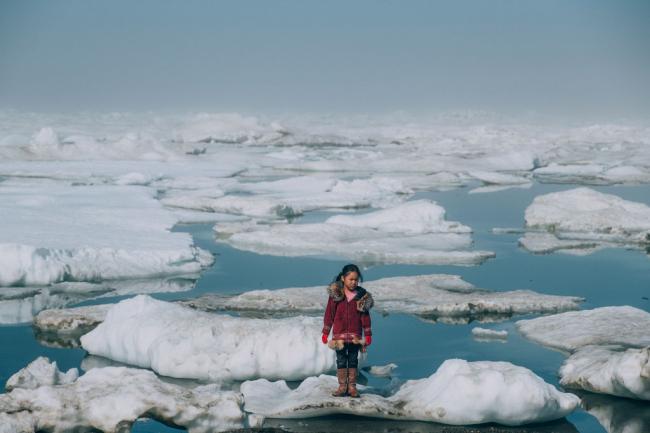
Research shows link between temperature rise and human influence, says head of UN climate panel
“[Research has] demonstrated the link between cumulative past, present and future carbon dioxide (CO2) emissions and a given temperature rise,” Hoesung Lee, the chair of the Intergovernmental Panel on Climate Change (IPCC), stressed in his keynote address at the UN General Assembly High-Level action event on Thursday.
“Bigger emissions now mean higher temperature in the future,” he added.
In his address, Lee drew examples from the Fifth Assessment Report (AR5) issued by the IPCC in 2014 and said that since then, warming has continued and global mean temperature rise has reached more than one degree Celsius above pre-industrial levels in 2015 and 2016.
Such observed warming led at the centre of the climate model projections assessed in the Report, he explained.
Underscoring that climate change threatened development, impacted economic growth, made poverty eradication efforts all the more difficult and severely underlined food security, Lee said that rising temperatures also had a very detrimental impact on the environment.
“Oceans are continuing to warm, acidify and lose oxygen,” he said, “Warm water coral reefs are already under pressure and 90 per cent would suffer significant risk from global warming of 1.5 degree Celsius.”
Touching upon the Sixth Assessment Report (AR6), which will be completed with a synthesis report in 2022, said Lee that it will be ready in good time for the first global stocktaking under the Paris Agreement on climate change the following year.
He also said that scientific research has illustrated that efforts to address climate change and pursuit of sustainable development can support each other, he cited the following example: “If food waste was a country, it would be the world’s third biggest emitter of greenhouse gases [therefore] reducing food waste globally can help fight poverty and hunger while stabilizing the climate.”
He also said that in its subsequent reports, the IPCC seeks to improve its scientific understanding of the economics of addressing climate change, such as of the benefits on health from clean air or the impact on energy security, balance of payments and jobs from energy efficiency.
In his remarks he further mentioned that researchers are on working on new methods to better observe and understand the climate, these will be crucial to help improve weather forecasts and climate projections.
“This science underpins the IPCC’s policy-relevant assessments and is essential for sustainable development planning,” he noted, calling for continued support the vital research.
Concluding his address, Lee highlighted that the expression “business as usual” is often seen for not taking action on climate.
“Business will be very far from usual in a world of no mitigation, which could see temperatures rise by an average 40 or more over the century,” he said stressing that economic development cannot be pursued by relying on high-carbon technology.
“Actions to limit climate change have a positive impact on the domestic economy and help improve human well-being, and adaptation reduces vulnerability, supporting inclusive and equitable development.”
The Intergovernmental Panel on Climate Change (IPCC) is an international body for assessing the science related to climate change. It was up in 1988 by the World Meteorological Organization (WMO) and UN Environment Programme (UNEP) to provide policymakers with regular assessments of the scientific basis of climate change, its impacts and future risks, and options for adaptation and mitigation.
Photo: UNICEF/Vlad Sokhin
Source: www.justearthnews.com
Support Our Journalism
We cannot do without you.. your contribution supports unbiased journalism
IBNS is not driven by any ism- not wokeism, not racism, not skewed secularism, not hyper right-wing or left liberal ideals, nor by any hardline religious beliefs or hyper nationalism. We want to serve you good old objective news, as they are. We do not judge or preach. We let people decide for themselves. We only try to present factual and well-sourced news.







